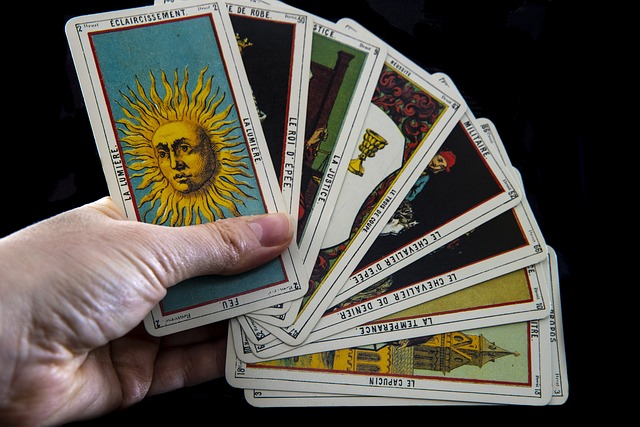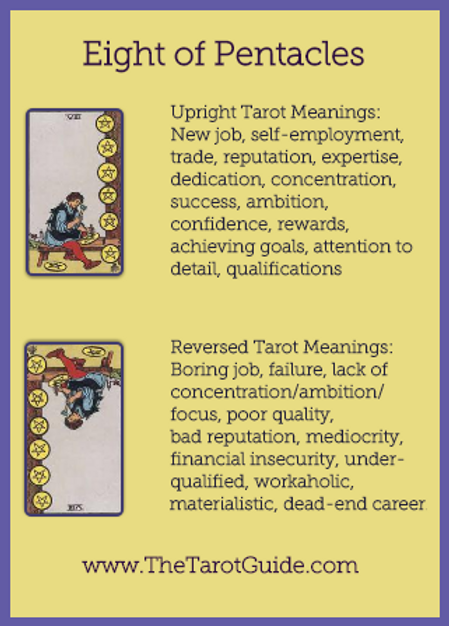
Palm reading has been around since ancient times. A palm reading guide is available for anyone who wants to learn the art. This article will explain the Life line, Wisdomline, Love line and Spatulate hands. Once you learn these, you'll have a better understanding of what your hand says about you.
Lifeline
A life line in a palm reading is an indication of the person's life path. It begins at the pointer finger and runs across the palm on an angle, towards the pinkie side. It is also located near the thumb and the heel of the hand. If the life line is long, then the person is energetic, adventurous and takes risks. The opposite is true for those who have a shorter life span. They are exhausted and unmotivated.
A strong and deep life line indicates that the person is passionate about work and is entrepreneurial. A narrow line, on the other hand, indicates that the person struggles with work. In addition, a narrow line represents a unique path to success. A Curve of Solomon, located below the index finger of a person’s hand, is also present. The Curve of Solomon relates to the person's emotions, natural ability to learn and natural ability.
Wisdom line
The head line or wisdom line is the part of the palm that indicates a person's intelligence. It extends from the thumb and index fingers to the middle part of the palm. It is located above the heart line, but lower than the life line. Mental strength is affected by a headline that is either too long or too wavy.

Other lines are called fate lines or life lines. These lines are used to reveal one's financial status and indicate the forces that influence their lives. A person with a deep fate line could indicate that they are capable of succeeding in multiple fields and have access to many assets. It may also indicate that a senior needs mentoring or assistance.
Love line
The love line on the palm of your hand can reveal a lot more about your love life. It can also reveal your emotional stability. You may feel uncertain about how to approach your loved one if the love line is curving. This can lead to a lack of confidence or self-esteem, which could cause problems in your relationship.
People with a curved heart line are likely to have a strong desire for sex. This is a sign that they are searching for a good partner. They might experience heartbreak or difficulty controlling their emotions.
Spatulate hand
Spatulate hands can be energetic, restless and have flared fingers and ends. They are inventive and driven and enjoy challenges. They are also practical and have a pragmatic attitude. Having a spatulate hand reading is a great way to learn more about yourself.
People with spatulate hands generally work in fields such as engineering, science, and art. Although they may not have the same financial rewards as other hand shapes, these careers are often extremely rewarding. These people are typically inventors. They can also be scientists, astronauts and explorers. They are extremely intelligent, even if they don’t have much.

Earth hand
The topography of the Earth hand reveals many details about your life themes. Mounts on the palm correspond to the seven classic planets. A prominent mount is indicative of a dominant personality. You can make predictions about the future by studying a person's hands.
The Earth hand features short fingers and square-shaped hands. They are practical and rational, but can be too concerned with immediate realities. If they are not given enough stimulation, this can cause them to lose their patience. Fire hands are generally more energetic, confident, and energetic, but may lack patience.
FAQ
What are your competitive hobbies?
You can compete in running, swimming or cycling as well golfing or tennis.
These games are often played by people who enjoy exercise but also offer the opportunity to interact with others.
You will probably find people around you who have the same hobby as you, if you are into physical activity.
This could mean joining a club, or group that meets regularly to do sports together.
You could also opt to take part in team games that involve playing alongside others.
These include football (soccer), cricket, rugby, netball, basketball, hockey, baseball, volleyball, badminton, squash, handball, and table tennis.
There are many types and levels of competition.
Some competitions are organized for purely recreational purposes.
Others are intended to test competitors' skill.
Yet, there are others that reward exceptional performance.
In these cases, winners receive prizes.
Other competitions are intended to test strength and stamina.
These are called endurance events.
For example, marathon races, triathlons, Ironman Triathlon, etc.
Athletes train hard before they compete in these events.
They will adhere to a strict training program that prepares them mentally as well as physically.
They may also need to spend some time away from home during preparation.
It is important that you remember that not every athlete can compete in every type or event.
What are good hobby ideas?
The best hobbies are those that you enjoy doing for yourself. It will be easier to continue doing what you love if you are passionate about your work. You'll also have an excuse when you're not feeling well or tired!
Hobbies that we all know and love include gardening, painting and crafts, photography, cooking, sports and games, reading, music, film-making, collecting, cycling, walking, dancing, writing, playing instruments, etc.
You might also consider volunteering at a local charity shop or animal shelter, children’s hospital, hospice, elderly home, school, community centre, church, and other places.
You might be looking for something more adventurous. Take up skydiving or rock climbing, parasailing, parasailing and paragliding.
There are many other ways to spend time outside. These include caving, cliff diving, cave tubing, abseiling, sea kayaking, rafting, canoeing, climbing, trekking, bushwalking, mountaineering, backpacking, trail running, orienteering, off-road driving, quad biking, motorcycling, motorcycle riding, dirt bike riding, jet boating, hang gliding, hang gliding, parachuting, hang gliding, heli-skiing, ice skating, snowmobiling, snowshoeing, snowshoeing, cross country skiing, downhill skiing, telemark skiing, ski touring, sled dog racing, snowboarding, snowkiting, snowmobiling, spelunking, snowshoe hiking, snowshoeing and many more.
What are some hobbies that seniors might enjoy?
Senior citizens should be able to enjoy activities that they are passionate about. They should also be active and take part in activities such as sports or other physical activities.
They might be interested in joining clubs that offer similar interests. They'll be less lonely as they get older.
Senior citizens need to be aware of the latest trends. They could be interested in fashion, art, music and literature.
Why do we need hobbies
Hobbies are a vital part of our lives as they allow us to unwind, relax, think creatively and exercise. They also give us the opportunity to socialize, network, and have fun. They also provide us with opportunities for learning new skills and developing valuable life-long interests.
Hobbies help us to find meaning and purpose in our lives.
These are a great way for you to have some free time, even if there isn't much else.
They're also fun!
You probably don’t have enough time to pursue hobbies.
You have many choices. Start a hobby today, if you don’t have one already!
How do I get started?
First, decide what type or activity you want to pursue.
After you've decided on your subject, it is important to feel passionate about it.
Understanding why you are interested in a hobby is important. It will give you some direction and purpose.
Once you have determined what hobby you wish to pursue, you can plan your next steps.
You should think about the equipment you'll need.
Consider whether you are required to attend classes and seminars.
Ensure that you have enough space for your hobby.
You may also consider joining a club or group. These groups are often supportive and offer advice.
Finally, think about how much money you would need to spend on your hobby.
Statistics
- The Role of the Mind in Sex, Dating, and Love: Men in the “humor” condition received phone numbers from 42.9% of the female participants and were refused 57.1% of the time. (time.com)
- Much of this decline reflects the fact that teens are less likely to work today than in the past; among employed teens, the amount of time spent working is not much different now than it was around 2005. (pewresearch.org)
- In comparison, men in the “no humor” condition were refused 84.6% of the time and were only accepted 15.4% of the time. (time.com)
- This 100% accurate personality-analyzing hobby quiz discovers your passion based on your characteristics. (quizexpo.com)
- I am 100% biologically a woman (discover.hubpages.com)
External Links
How To
How to learn how to play a musical instrument
There are many options for learning how to play the piano. You could go to a school or buy a book. You could also take lessons from an experienced musician, watch videos online, and so on. These are just a few tips and tricks to help you get started if you're determined to make your own path.
-
Find something that interests your interest. Try another instrument if you don't love any of the ones you see. If you don’t enjoy playing an instrument it will be hard for you to get into it.
-
Be patient. Learning something new takes time. Don't expect to master everything right away. Keep practicing each day.
-
You should practice often. You can do this even when it is hard. This will help you remember what you've learned.
-
Find a quiet place to practice. Ideal is a quiet area where you don't have to disturb anyone else. Make sure there aren't distractions. You should avoid loud music being played near you.
-
Have fun! Music is meant for enjoyment. So make sure that you always have fun while practicing. You'll be more motivated to practice if you enjoy yourself.
-
Set goals. When you set goals, you know exactly what you have to achieve. You will never be ashamed to fail.
-
Keep track and keep track of your progress. Keep track of all your successes and failures. Doing so will help you improve over time.
-
Take breaks. Sometimes all it takes is to take a breather. Take breaks to allow you to reflect on things.
-
Ask questions. Ask others if there are any doubts or questions regarding the instrument. They may be in a position to assist.
-
Listening is the best way to learn. Many musicians enjoy listening to their favorite songs and trying to imitate them. This helps them understand basic concepts behind the song.
-
Read books. You will learn more from reading books than you can by watching videos or attending classes. You will also find information in books that you won't find anywhere else.
-
You can join a band. Playing with other people will make you more practice. Plus, you'll meet people with the same interests as you.
-
View tutorials. Tutorials are short videos that explain various topics in great detail. These tutorials usually concentrate on one particular aspect of an instrument. Tutorials can be helpful in understanding difficult parts of an instrument.
-
Try different methods. Some prefer to learn by listening, while others prefer reading. Experiment until you find what works best for you.
-
Practice makes perfect. You don't become an expert overnight. Instead, you must put in lots of effort before becoming skilled enough to perform well.
-
Play along with other musicians. Listening and learning from others can help you to learn faster.